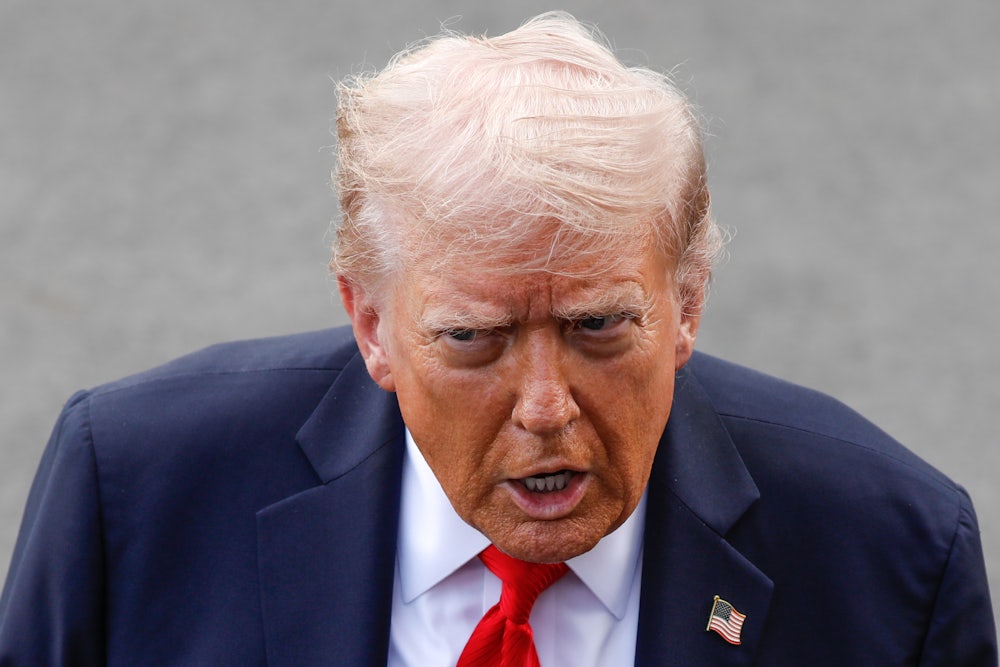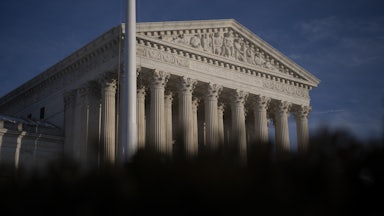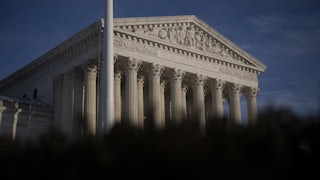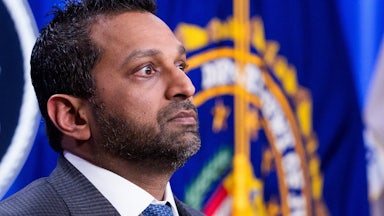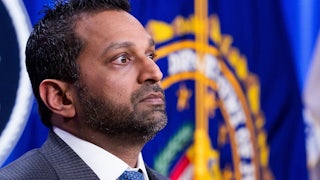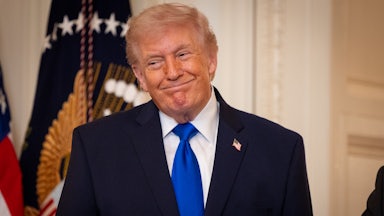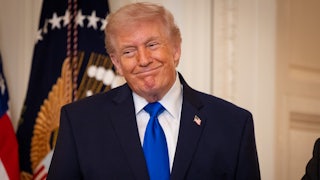Since his second inauguration, Donald Trump has led a relentless assault on the rule of law, consolidating power in the executive branch and turning the United States into an apparent autocracy. Through all of it, we have heard from reasonable commentators that the country’s system of checks and balances–and the Supreme Court, in particular–will rein Trump in so that he has at least some democratic and legal accountability for his lawless actions. These pundits have missed the big story: The Supreme Court laid the groundwork for everything that Trump is doing today.
A recent, horrific example of this plain fact is Trump’s summary execution of 11 people on a boat in the Caribbean, which he claimed was trafficking drugs to the United States. Supreme Court jurisprudence and both federal and state law may have provided some constraints on a fascist president prior to the Roberts court, but considering decisions in Trump v. United States and Hernandez v. Mesa, a stark and unsettling reality is emerging: The president of the United States, once envisioned as a constitutional officer bound by the rule of law, now seems largely untouchable—not just in terms of political power but in terms of legal accountability.
The theoretical underpinnings of American constitutionalism—separation of powers, checks and balances, and the idea that no one is above the law—have long served as guideposts for a functioning democracy. But in practical terms, the legal regime constructed by the Supreme Court has gutted the possibility of redress for the victims of executive overreach. The court has, in effect, created a special legal zone around the presidency—as well as executive agents writ large—in which actions, even when blatantly illegal, are immunized from consequences.
On September 2, Donald Trump ordered the extrajudicial killing of 11 nonstate actors on a vessel in the Caribbean, based on vague and contested intelligence claims. Legal scholars, human rights organizations, and even some former national security officials have called the act a clear violation of international law. Yet because of the court’s recent jurisprudence, there is effectively nothing anyone can do.
Let that sink in: A president can apparently now order lethal force outside of congressionally declared wars, in international waters, without oversight, and face no personal criminal or civil liability—even if the action was blatantly illegal. Normally, when an executive officer violates the law, they may expect to be charged criminally by the government or be subject to civil lawsuits from the people harmed by their actions. However, between providing criminal immunity for all “official acts” by the president and removing civil accountability from actions outside of U.S. borders, the Supreme Court has eliminated any path to restraining Trump short of impeachment and removal.
In Trump v. United States, the Supreme Court held that a former president is “absolutely immune” from criminal prosecution for acts that fall within his “official duties.” While the opinion attempts to cabin this immunity by distinguishing “official” from “unofficial” acts, in practice, the decision is so deferential that virtually any act plausibly tied to the office of the presidency can be cloaked in immunity.
The court did not provide a clear test for what qualifies as an “official act.” Instead, it emphasized that courts must avoid “second-guessing” the discretionary functions of the executive branch. This creates an expansive shield around presidential conduct, effectively walling off avenues of criminal legal accountability.
Layered on top of this broad criminal immunity is the court’s decision in Hernandez v. Mesa, in which the court declined to allow a civil remedy for the cross-border shooting of a Mexican teenager by a U.S. Border Patrol agent. The court reasoned that foreign policy and national security concerns made it inappropriate for courts to create any kind of damages remedy for such plaintiffs, absent explicit congressional authorization—an exceedingly high bar for those seeking redress to clear.
The principle from Hernandez is chillingly plain: Even when a constitutional violation is obvious, the judiciary will not necessarily provide a remedy—particularly when the case touches on foreign affairs or executive discretion. If a rogue Border Patrol agent can kill a Mexican child across the border, and the courts say the victim’s family has no right to sue, what happens when it’s not a rogue agent but the president himself giving the order?
There’s a long-standing legal maxim: “Ubi jus ibi remedium”—where there is a right, there is a remedy. Chief Justice John Marshall echoed this in the seminal case Marbury v. Madison, when he warned, “The government of the United States has been emphatically termed a government of laws, and not of men,” and that this ideal collapses “if the laws furnish no remedy for the violation of a vested legal right.”
It was bad enough when the court was creating a slew of rights without remedies by undermining executive accountability with qualified immunity doctrine, weakening Bivens protections, denying judicial review for blatant violations of constitutional rights, and more. But what we are seeing today is not only a government of “laws without remedies.” It’s a government where certain actors—the president, in particular—can violate the law and evade every form of accountability: criminal, civil, and political (short of impeachment, a dead letter in our hyperpartisan era). In other words, we are not merely seeing the erosion of legal remedies; we are witnessing the effective annulment of law itself as a constraint on executive power.
The administration is fully aware of the impunity that the court has granted it. Unlike previous administrations, which would typically at least pretend that they had legal justification before taking action, this one was still figuring out the legality of the strike up to days after the event. Vice President JD Vance went so far as to say that he doesn’t “give a shit” that Trump’s actions could be called war crimes.
The current jurisprudence surrounding executive power risks codifying a kind of elective monarchy. A president, while in office, can exercise extraordinary powers with minimal legal oversight. After leaving office, they are largely immune from prosecution for those same acts. And if the victims are foreign nationals, as in the Caribbean killings, the courts won’t even allow their families to sue.
This is not what the Framers envisioned. The Constitution deliberately omitted any concept of absolute immunity or unchecked authority. The impeachment process was never intended to be the only mechanism for presidential accountability, but rather the most extreme and political one. The judiciary was supposed to serve as a check when laws were broken. Instead, we now face a system where laws apply to everyone—except the one person who arguably holds the most power. It’s hard not to see this as a profound betrayal of democratic ideals.
There are no easy solutions. Congress could theoretically pass laws clarifying that no person, including the president, is immune from criminal or civil liability for illegal acts. But such efforts are likely to face fierce opposition and, more crucially, may run afoul of the very courts that created this immunity doctrine.
Reforming the judiciary itself—through court expansion, term limits, or jurisdiction stripping—is an idea gaining traction, but for most Democrats such measures are difficult to stomach. It may be untenable for such Democrats to hold elected office much longer. While we wait for electoral solutions to manifest, however, the message from the court remains crystal clear: Even if a president orders unlawful killings abroad, no court will intervene, no prosecutor may act, and no victim’s family can seek redress.
This isn’t just “rights without remedies.” It’s governance without accountability. And if law cannot restrain power—if the courts will not even pretend to try—then law, in any meaningful sense, ceases to exist.
